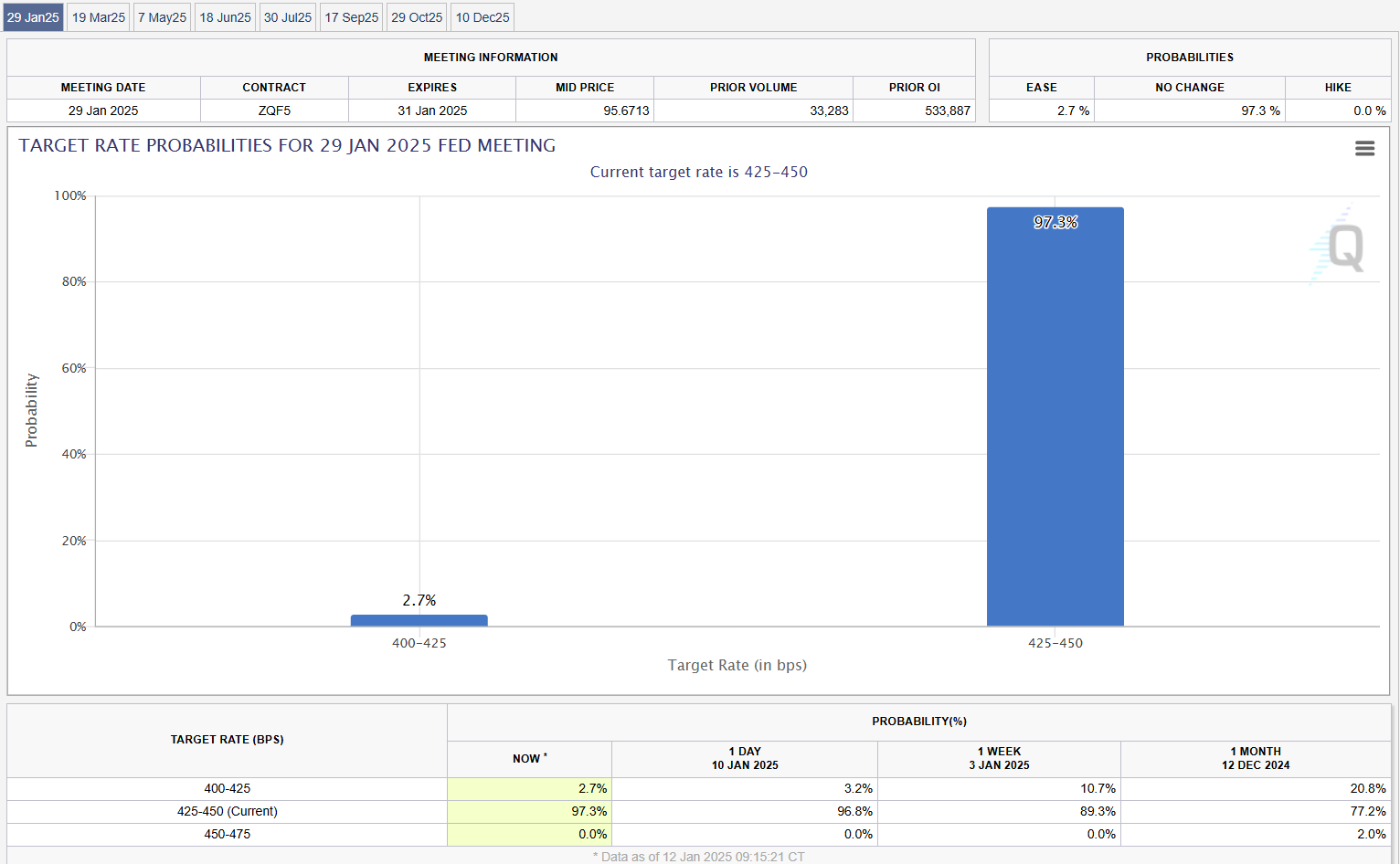Key Takeaways
- Bitcoin experienced its worst weekly performance due to a strong dollar and Trump’s potential tariff plans.
- Despite short-term challenges, long-term structural tailwinds for Bitcoin and digital assets remain intact.
Share this article
Bitcoin’s rise of over 45% in the aftermath of the November 5 presidential election had already lost steam. Analysts anticipate more turbulence ahead as President-elect Donald Trump’s proposed tariff plans and robust employment figures drive bond yields higher, strengthening the dollar and putting pressure on digital assets.
“Bitcoin’s problem at the moment is the strong dollar,” Zach Pandl, head of research at Grayscale Investments, told CNBC, noting that the Fed’s recent signal helped in part strengthen the dollar.
Bitcoin was off to a strong start this week, reclaiming $102,000 on Monday, CoinGecko data shows. However, the rally was short-lived; the flagship crypto asset dropped below $97,000 the next day and extended its slide toward the end of the week.
“I would attribute the drawdown in the last two days largely to the market starting to appreciate that not every aspect of the Trump policy agenda is going to be positive for Bitcoin,” Pandl addressed the recent decline, adding that Trump’s proposed tariff plans introduce uncertainty into the market.
Trump is considering declaring a national economic emergency to facilitate his plans for implementing universal tariffs, CNN reported Wednesday. This, coupled with related economic policies, could create a range of inflationary pressures. Yet, no final decision has been made regarding this declaration as of now.
While there was initial optimism regarding a pro-crypto environment under Trump’s administration, conflicting signals about the extent of tariffs could create volatility and negatively impact risk assets like Bitcoin.
Continued high interest rates
Stronger-than-expected payroll numbers in December 2024 indicate that there may be less urgency for the Fed to lower rates to stimulate the economy. Following the report, investors have lowered their expectations for near-term interest rate cuts.
As of the latest data from the CME FedWatch Tool, market participants are leaning toward the probability that the Fed will keep interest rates unchanged during its upcoming meeting on January 28-29, with a likelihood of 97%.


The Fed cut rates by 25 basis points last month, but it also delivered a hawkish message showing a cautious approach moving forward. The central bank projected only two rate cuts this year, down from previous projections of more reductions due to ongoing inflationary pressures and economic conditions.
With a cautious Fed and uncertainties surrounding Trump’s economic agenda, “it’s possible risk assets will face choppiness over the near term, despite long-term structural tailwinds for Bitcoin and digital assets remaining intact,” according to Alex Thorn, head of research at Galaxy Digital.
Pro-crypto legislation may take some time
Potential positive impacts from pro-crypto legislation may not materialize quickly as Congress is expected to prioritize non-crypto issues over the next three months, according to JPMorgan analyst Kenneth Worthington.
Yet, Worthington is confident that Congress will eventually shift its attention back to digital assets and take up important crypto-related legislation, like potential frameworks for stablecoins and market structure.
The New York Digital Investment Group (NYDIG) has the same viewpoint.
In a recent report, NYDIG’s research head Greg Cipolaro suggests that immediate changes to crypto policy are unlikely. He points to various governmental processes, such as official appointments and confirmations, that could delay the implementation of new policies.
The analyst also notes that other legislative priorities may take precedence, further delaying crypto-specific initiatives despite a generally positive outlook for digital assets from Trump’s prospective appointments.
Share this article




